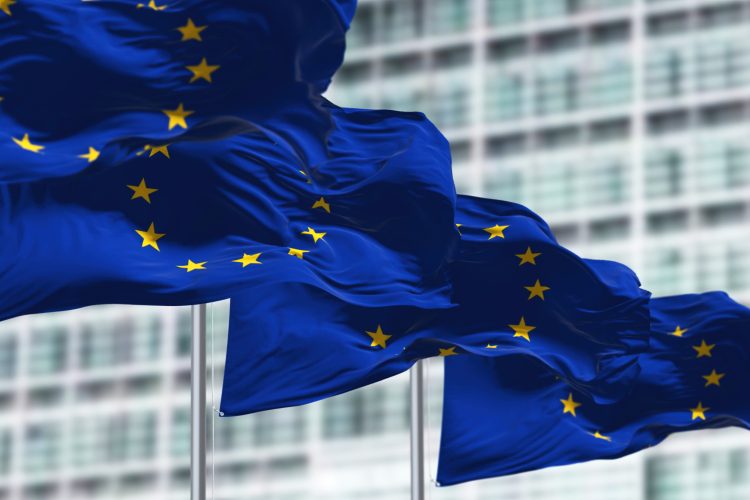The GMO battle enters the European theatre
- Like
- Digg
- Del
- Tumblr
- VKontakte
- Buffer
- Love This
- Odnoklassniki
- Meneame
- Blogger
- Amazon
- Yahoo Mail
- Gmail
- AOL
- Newsvine
- HackerNews
- Evernote
- MySpace
- Mail.ru
- Viadeo
- Line
- Comments
- Yummly
- SMS
- Viber
- Telegram
- Subscribe
- Skype
- Facebook Messenger
- Kakao
- LiveJournal
- Yammer
- Edgar
- Fintel
- Mix
- Instapaper
- Copy Link
Posted: 22 November 2023 | Joshua Minchin (New Food) | No comments yet
Joshua Minchin reflects on the proposed deregulation of NGT products in the EU and analyses the effect on the food industry.


A constitutive session of the European Parliament lasts for five years. That means, in 2024, this session will end and once again Europeans will go to the polls to elect new MEPs or give their current representative another few years.
Why is this relevant? Well, by the time this session is over, the Parliament might well have ushered in a brave new world as far as EU agriculture is concerned: genetically modified crops. The GMO debate has raged across the world and has, in the past two years or so, entered the European theatre.
The US has been producing and exporting GM food for decades, and indeed one of the first landmark agricultural laws passed through the UK legislature post-Brexit was the Precision Breeding Bill, opening the door for genetically edited crops to be cultivated on English farms (for the time being).
So why has Europe been slow to the party? Why is it reluctant to even join the party? At an event hosted by some anti-GMO organisations and individuals at the European Parliament in Brussels in November, the depth of feeling both for and against proposed deregulation was made very apparent.
What is being proposed?
The very parameters of the debate are themselves up for debate. Officially, the European Commission is seeking to change legislation concerning crops produced with “new genomic techniques”, or NGTs. The Commission notes that, in 2001, when legislation surrounding GM crops was introduced, NGTs were not in existence. Now, it is seeking to separate “NGT plants that could also occur naturally or by conventional breeding” from that piece of legislation – decoupling them from the GMO ban that is currently in place. The spirit of the proposed deregulation (according to the Commission at least) can be summed up in one Q&A: “Are you deregulating GMOs? Absolutely not.”
But this is disputed. Those in favour of the proposed deregulation insist that NGTs are not GMO – a term that carries a lot of weight among European consumers. But there are many that see NGTs as exactly that, including some of the MEPs at the event in Brussels and indeed some food and beverage companies. As Maria Noichl (MEP, S&D) told New Food in Brussels, the Court of Justice of the European Union (CJEU) agrees with her and her colleagues. In 2018, the CJEU ruled that organisms grown using NGTs fall under the current EU GMO legislation.
The need for transparency
Parking the debate about what the debate is about for a moment, one of the biggest criticisms against the proposed deregulation is the removal of consumer choice and indeed transparency as a result of the legislation.
This aspect of the argument was one brought up by many at the event in Brussels, who were concerned that consumers would no longer be made aware that the food they are buying has been produced with NGT/GMO methods. As Noichl put it: “Europe stands for choice. Not just in democratic elections, but on the supermarket shelf too.”
French MEP Christophe Clergeau (S&D) added that “we need traceability to allow consumers to exercise the freedom of choice through labelling”.
It’s labelling which is a major sticking point of the deregulation. Michaela Šojdrová MEP said there was no need to label NGTs, as they are not GMO. “The difference between natural breeding and NGTs is speed,” Šojdrová told New Food. “For NGTs, as with conventional breeding, it is not necessary to introduce labelling”.
Šojdrová said she would be in favour of voluntary labelling for NGTs “if it were possible” This is once again contentious. Those in a similar camp to Šojdrová claim it is simply not feasible nor possible to trace a component ingredient from field to packaging. This, too, is contested.
“It is our day-to-day business to make our food chain transparent,” Fritz Konz, Quality and Environment Lead at tegut (a German retailer) told New Food. “I know of at least 50 labels that have this chain of custody from farm to the consumer. The organic label does the same, fairtrade does it too. It’s possible, it’s as simple as that.”
The impact on industry
There is a feeling that the proposed deregulation will make it through this session of the European Parliament, i.e. before June 2024. If that does come to pass, what will it mean for industry?
According to those in favour of the legislation, farmers are already calling for the green light to use NGT crops, which according to the Commission can possess greater resistance to disease, pests, or increasingly hostile climates. “Our farmers are asking me why we can’t use these new advanced breeding techniques” said Šojdrová. It should also be said that these proposed advantages are disputed, with one study claiming that “developing new plants with modified traits will not be sufficient to reach food security or adaption to climatic changes in a short time frame.”
Though this is not a feeling shared by everyone. Some brands have built their entire image on organic produce and the ability for consumers to choose. “We at tegut want to ensure we offer transparency,” said Konz. “This transparency is in danger and that is what worries me most.”
This was a view shared by Hans-Peter Dejakum, Board Member Global Marketing at Loacker. Dejakum shared data that Loacker’s “natural taste” claim was the most important to consumers across all major markets, including China, US, Germany and Saudi Arabia. “We have established a strong and unique positioning for our brand” Dejakum said. “We claim for non-GMO – please leave it as it is.”
This is an interesting point. It’s true that the Commission has reiterated that NGTs would remain prohibited in organic products. But that’s not the point. The fear that Loacker (and many other businesses) has is that if consumer trust in non-GMO labelling is eroded, then their brand and indeed business model could be rendered irrelevant. Truth is one thing, and consumer perception is another. If NGT labelling is not made compulsory for any of the reasons mentioned above, will consumers class them as genetically modified products? If they do (whether scientifically they are declared as such or not), then the non-GMO label becomes obsolete. Even if a product does not contain NGT ingredients at all, if consumers don’t trust it then the label isn’t worth the packaging it’s printed on.
There is plenty of passion on both sides of the debate. There is a feeling of momentum and indeed inevitability about the EU adopting NGTs (or at least some of them). It’s true other markets have embraced this new science – some are of the opinion this latest proposal is the equivalent of the EU trying to fit in at the school playground so it can play with somebody else’s ball. The truth is in all likelihood much more complicated and will no doubt involve endless complex trade agreements that might be made simpler by simply falling into step.
No matter what happens before June, the impact on industry will be great. Transparency within a supply chain is a bit like currency – it’s value depends entirely on trust. Even if a supply chain is transparent, if consumers disagree then the whole thing is a moot point. That is what’s really at risk here. GMO or no GMO, if consumers stop trusting the food we sell them, we’re in big trouble.
Related topics
Genetic modification (GMO), Packaging & Labelling, Regulation & Legislation, Supply chain








